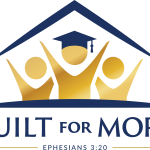We hear about it in the news constantly or read it online’ “state schools cut funding for physical education and music programs,” or “new Common Core standards exclude cursive writing.” Programs and curriculum that bring value to your children’s education are slowly working their way out of many of today’s schools and are being replaced with a new emphasis that focuses solely on technological skills.
Why not have both?
At Cambridge Christian School, we focus our attention not only on preparing our students for 21st century learning, but also on the foundational skills that many schools have abandoned.
Research has shown that students across the nation are spending only minutes a day outside doing physical activity and approximately 5-7 hours a day in front of a television or com-puter screen (Lue, 2013). The American Academy of Pediatrics asserts that recess is a crucial and necessary component of a child’s development (AAP, 2012). The National Association for Sport and Physical Education recommends that elementary students get at least 150 minutes of instructional and physical education time per week (NASPE, 2010). Why are these critical components of a child’s development being left out? Some answers are to meet the demands of a Common Core, to accommodate a more rigorous academic curriculum, or sometimes just to save money.
Our Lower School Physical Education Department provides your child at, grade levels 3-6, with a comprehensive physical education program and recess opportunities that combined, meet or exceed the NASPE recommendations.
Why is cursive writing important?
Under current Common Core State Standards, the overwhelming majority of states do not have cursive writing as part of their curriculum (O’Connor, 2014). Research shows using cursive is an important tool for cognitive development (Klemm, 2013) and develops functional specialization that integrates sensation, movement control, and thinking (Klemm, 2013).
Our Lower School introduces and instructs children in cursive writing beginning in second grade while continuing to learn key-boarding and other marketable technological skills through sixth grade, building relationships and confidence all through-out the process.
What about our music program?
Research shows that children who participate in music education for one year have increases in general intelligence (Schellenberg, 2006). Music is also mathematical. The rhythmic quality of music fosters children’s ability to keep time and count sequences (Seefeldt, 2010). Research also has found that music instruction helps develop the capacity for spatial-temporal reasoning, which is integral to the acquisition of important mathematics skills. Musical training in rhythm emphasizes proportion, patterns, fractions and ratios express-ed as mathematical relations. Those who took instrumental music were more than twice as likely to perform at the highest levels in math as their peers who were not involved in music (Catterall, 2002).
Our Lower School Program creates a foundation in Music early on by administering music instruction weekly starting in Preschool. We also have a Beginning Band and Advanced Band program for our fourth and fifth graders twice a week. Our sixth graders have the option of Choir or Band, which perform regularly with the middle school music students, and for weekly chapels. Our hope is to carry on a legacy of music in your child’s life that will continue through their middle and high school years.
What can you expect from a CCS education?
Cambridge Christian School’s college preparatory program begins in preschool. Our goal, through the use of a blended curriculum, is to have students who are proficient in the fun-damentals, as well as 21st century technology. Our commitment to Engaged Learning enables students to learn and become accomplished in their presentation, critical thinking and relation-al skills. Most importantly, taught through the lens of a Biblical Worldview, our integrated curriculum is designed to deepen our discussions and help grow our students both academically and spiritually.
References
American Academy of Pediatrics. “The Crucial Role of Recess in School.” March 2012. www.aappublications.org
Catterall,J. (2002). “The Arts and the Transfer of Learning.” In R. Deasy (Ed.), Critical Links: Learning in the arts and Student Achievement and Social Development, Washington, DC: AEP
Lue, Erica.” Cutting Physical Education and Recess: Troubling Trends and How You Can Help.” Sept. 2013. www.learningfirst.org
National Association of Sport and Physical Education. “Sports and Physical Education Standards.” 2010. www.Nasbe.org/healthy_schools/hs/natstandbytopics.php
O’Connor, John. “Your Essential Guide to the Common Core.” March 2014. www.stateimpact.npr.org
Schellenberg, Glenn. “Long Term Positive Associations Between Music Lessons and IQ.” Journal of Educational Psychology 98.2 (2006): 457-468
Seefeldt, C. “The Value of Music in Music Education.” July 2010. www.education.com






